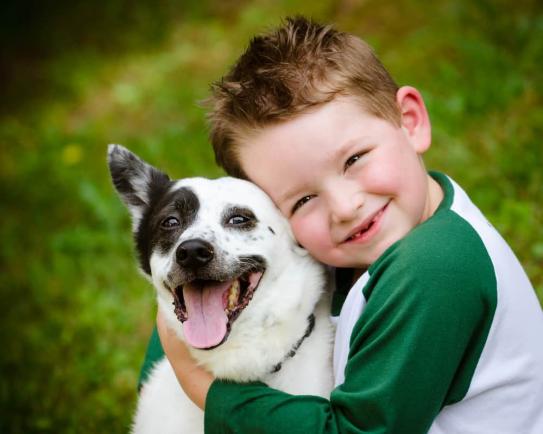
Getting your child's first pet is a momentous occasion. Even if your toddler grew up with the family cat or dog, having his very own pet is a rite of passage. So how can your family make the best decision for a mini addition while considering the safety and responsibility of every member of the household?
Ask yourself and your child:
1. Is it safe for them?
Even small pets can pack a mean punch. Do your research and find out if the pet your daughter has her heart set on may cost you more than the retail price. For instance, as big of a fan of pet rodents as I am, I've had my fair share of harrowing run-ins with hamsters, in particular. They bite! Hard. And the temperament you get in a hamster can't be seen until you get them home and acclimated; which can take several weeks. I had a Teddy Bear hamster I could never touch or play with, so I just kept him comfortable. I also had a Golden hamster that was perfectly sweet, but did take a chunk out of my finger simply because it was curious.
2. Can they be responsible for it? And will they be responsible for it?
As cute and seemingly low-maintenance as Tetra goldfish are, they require constant upkeep of the bowl, especially if it is a simple setup without a filter. These little fish poop a lot. They also eat only once a day. Overfeed a fish and it's a goner.
3. How long will it live?
Pet mice can last several years. Dogs and cats up to 15, or more. Birds, upward of 30. A tortoise will outlive you! The real question is, can your kid handle the loss once the inevitable circle of life takes place. Let him know what to expect before you get the pet. Make sure he understands all pets are temporary; so enjoy them while they last.
4. What can they learn from caring for it?
Life is full of lessons, and pets make excellent teachers. Your child can learn responsibility, compassion, dedication and sacrifice when fully caring for an animal companion. The question is WILL he learn these things? You know your child; what lights her up and what makes her tick. If he is moved by cuddliness and warmth, get him a fuzzy friend. If your children are into science and experiments, try a lizard or ant farm. If they're hands off and just like to watch, aquatic and amphibious life may be more suitable. Assess the level of interest and commitment in each type of creature before breaking out the credit card.
5. Will the family be around to care for it long term?
In the end, a pet is a family affair, no matter who it "belongs" to. That doesn't mean you let your daughter get off without taking responsibility and making the effort. But if the family goes on vacation consistently or is too busy to have time for a pet, consider the consequences of leaving your furry friend home alone all the time. You wouldn't want to be left feeling lonely and abandoned, would you? Consider the same for your animal. A pet is an investment. Make sure you can afford the whole cost of time and space, not just the price tag.
Deciding on the perfect pet for your little ones is the first step in getting a kid-friendly pet. Next is finding it. There are many resources available to adopt and rescue loving companions. Look for shelters and individual adoptions before shelling out large sums at retail chains and expensive boutiques. Millions of pets need loving homes, and your family can give an abused, neglected or abandoned animal a forever home in your area. Search online, make some phone calls and bring two families together over love and affection. Rescued animals make the best companions because they never forget what you did for them.
But in the end, consider whether or not your child can handle the responsibility, inevitable loss, and proper safety precautions with the animal as your primary guide for the new family pet. There is a perfect pet out there for your family; so come together for the decision and to love it for life.

